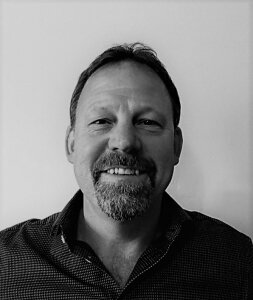Solar Energy & The Corporate World
Holly Lochinger | myfm:
"Would you mind telling us more about your ideas around energy innovation? I know innovation & energy sustainability are very important to you, as you spoke about the solar panelling & farmland last week. How do you know one can affect the other? Would you mind telling us how you're working with it now?"
Béla Almay:
"Of course. It started years ago when I was doing smart poles for a German company RWE. It's a big energy company in Germany, & I was operating the project from a Hungarian company, ELMU. We were developing smart lighting poles that needed to be everywhere as you can't give light on the roads/motorways. So we created it with the understanding of how we can use it.
For everything in sustainability, autonomous driving, & so on, it was a good period at RWE until another big energy company in Germany, bought some part of RWE, doing big business. As a result, the one I was working on went over as they didn't want to continue with the development of smart poles, & that's when I started looking out.
While looking for opportunities to work around sustainability, green future, development & innovation, I came across myfm. I was happy to join in & know I'd work for you on Bosch facility management. I then had a perfect chance to get this Hungarian construction company on board that wanted to invest in developing sustainable resources as they cared about the C02 footprint & had started a new division where the focus was on material & services. We aim to reduce CO2 footprints wherever possible & make the whole product more sustainable using less materials.
We manufacture steel structures & façade cladding. Today we've four to five products that combine with solar green energy because it's green cladding where you grow natural vegetables. The facades' cladding gives better air & boosts the natural growth of the vegetables. Also, they're grown horizontally & vertically, so pruning & healthily fitting them is a task. Doing cladding & facades is exciting.
Architects don't like to see solar panels on the facades; most want to see a lovely building, so how to develop it to look attractive & practical is interesting. Everyone's talking about solar panels today, but the problem is when you put big solar farms, you're using the essential plot of the area, just like wine yards where on the top you've energy & under you've got the grapevines. They bring rain, water & sunshine - it's a crucial development, & we call it Agriculture PV. Solar panels give energy for production; however, this kind of solution is innovative but not green because it's a lot of material."
Holly Lochinger | myfm:
"Would you mind suggesting for people who haven't heard about agricultural PV, what's the science behind that versus your standard traditional solar panelling, & how does it interact with the crops? In terms of its location where it's put, is it the material itself?"
Béla Almay:
"So it's everyday use solar panel which you put on the roof or the site. Having solar panels/solar cell with silicone isn't complicated, & when we talk about agricultural summer sun solutions, it's not enough that you put it there & you make energy. You have the sun & water to go through because once you do so, it'll be like a house on top of the agriculture.
We work with unique panels that let the sun get in & a unique construction that allows the water to enter. Also, another thing to note is where to collect all this power because perhaps you don't need so much energy currently, so you'll have to park it somewhere as a reserve (maybe we can use it for a big electricity grid?). We see fascinating questions around this, perhaps within the electricity & its making."
Holly Lochinger | myfm:
"So does that mean that you'd need specialists?"
Béla Almay:
"Definitely, one who understands how it works – from collecting the crops to overseeing & maintaining the development of that land. It's challenging to do & to coordinate all the players; you must know what's working. It'd be best to have input on the construction work & information on how a solar cell works.
You'll need feedback on how you can store electrical energy. You'll need all the expertise to know what the farmer, the electrical,& the construction guy are thinking. So it's like a dynamic team working together to find a suitable solution.
Cleaning solar panels becomes a whole new business altogether. So the energy is adequate as it should be, then cleaning itself, it's a whole new business. A good solution is putting it on a tractor & driving around with a robot on the roof, as it's challenging to locate. Cleaning is a new business, & cabling is another business.
It's crucial to what cable you are putting in,& the software for handling this energy is a whole business area to work on. Another part is how to mount all this, as new businesses today only talk about the ball, bearings etc. Today, it's not only the panel; it's everything around it."
Holly Lochinger | myfm:
"What aspects are you in charge of then in bringing everything to life?"
Béla Almay:
"Currently, I'm focusing on this company doing steel structures & facades. The next step will be where we'll do all the construction, cladding facades, buttons etc.; I believe it has to involve everything & all areas, not only the building. It's exciting - sustainability, green energy. I think it's also essential as we're now over 17 billion people living on this earth. So we have to take care of this now."
Holly Lochinger | myfm:
"Where have you implemented it so far? What kind of locations?"
Béla Almay:
"We are currently focusing on the German & German-speaking markets (Switzerland & Austria) but mainly Germany because of the electrical prices. You got to have an ROI on this one. And if it's very high electrical prices, you get the return on investment much faster. The other thing from the political angle is that Germany is giving in front of the rest of Europe. We support solar, while some countries focus on other green to standard areas."
Holly Lochinger | myfm:
"How do you think it's been received so far? Has there been any resistance?"
Béla Almay:
"I have had very positive feedback from clients. They're looking very positive, as we did a lot of value-added engineering work recently because you've had to put down the prices. After all, it's good to be green. We've worked hard to make it cheaper without losing the focus, bringing it more for the market. Because you see, in few countries, they don't care the cheapest we put it there, & I think in the long run, when we're talking about sustainability, we've to find the most effective way in a long way, which is most beneficial."
Holly Lochinger | myfm:
"Am I right in thinking that in the long term, it might be a cost that needs to be laid initially, but long-term energy bills are going to be positively impacted by having such initiatives, which are high costs? So how do you see yourself moving forward from the German market & becoming more widespread internationally"?
Béla Almay:
"Exactly. So this is the balance you must find where you must think long-term. I think this will follow the electricity prices & the sustainability politics. I guess the next step from Germany & the German-speaking is what I think it's Canada. London area has a long tradition of good sustainability & safety. And I'm not only talking about sustainability in energy; I'm talking about sustainability all over in, in jobs, in people & then whatever.Sweden & Scandinavia have been at the forefront of everyone. You can see the 3-point car belt you are using that was started by Volvo. They were the first to put it in people's cars, saving lives. It's coming from Scandinavia, so I think the next step for this would be Scandinavia."
Holly Lochinger | myfm:
"Do you think it's something that countries like America or maybe China by far would adopt in the long run?"
Béla Almay:
"I think Asia is the next big, especially India & China. I hope the political situation in India will go more that way as they're a country of many people, & you have to start to think about sustainability.
I'm not only talking about PV panels & energy but also about sustainability all over. The next step is Asia, not the USA or South America. I see potential, but if we look into the macro world, transporting materials to South America or Australia is complex, & we will witness many footprints. But to give the knowledge to Australia or South America can be a more straightforward step."
Holly Lochinger | myfm:
"Right, then you've got a collection of countries come together & say this is what we must do,& hopefully, you know that'll become a trend with many new initiatives & ideas, then everyone else looks and thinks, OK, this is something. It'll hopefully supersede political differences & territory. As you said, it's a global thing where we're all invested because we live on this planet together."
Béla Almay:
"Yes. I think that's the next step & not easy. It's over 7 billion people, their beliefs & culture. But yes, this would be for everyone. It propels us to think globally, & it's step-by-step. I see positive attitudes worldwide when we're talking about sustainability. I grew up in Sweden before moving to Hungary. Now, 20 years later, sustainability is very much adopted in Hungary, which was standard in Sweden then, so I'm glad to see the good in other countries passing & taking over. I hope it's worldwide."
Holly Lochinger | myfm:
"So would you like to highlight anything to our audience who perhaps are starting to come around to this new way of thinking? Is there anything else you'd like to include"?
Béla Almay:
"I think it's a mindset -everyone must try to change their perspective—for instance, a simple thing like food. If I take too much food & don't eat it, I put it in the waste. It's a lot of energy. It's a lot of CO2 footprints. So, everyone, please think in that way.
Don't take more food if you can't eat & also try to eat basics. Instead of eating a hamburger with a lot of packaging, take a good watermelon. So I'd try to urge people to please think. Eat green & optimise your energy, as you'll need fuel for your daily chores. So try to optimise it & don't overuse it.
Also, don't put the air conditioner on & open the windows simultaneously. If you can't finish an apple, don't put it to waste; give it away to a dog, squirrel, or horse or eat it- that's my advice to everyone".
Holly Lochinger | myfm:
"Then there are generations & next, so we must ensure they're acquainted with these new ideas & values, so they don't know any different."
Béla Almay:
"Yes, that's the crucial point. I have three children born in different generations & am pleased to see this coming. Educating these minds is vital. I also had the same experience & tried to put it on my children. As my father said- you're heritage, so take care of what you've because your children have to take it over, & if they've it on from you & further. So please don't waste it for everyone."
Our experts are here to help with competency and your capacity-related demands.
Scroll through the myfm team below and click to find out more on their experience, skill set and how they can help your business and needs.





